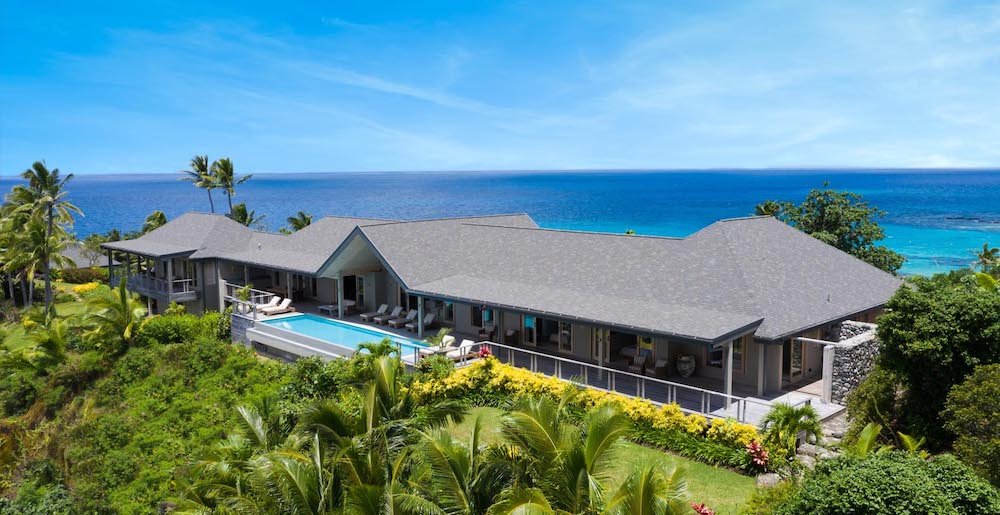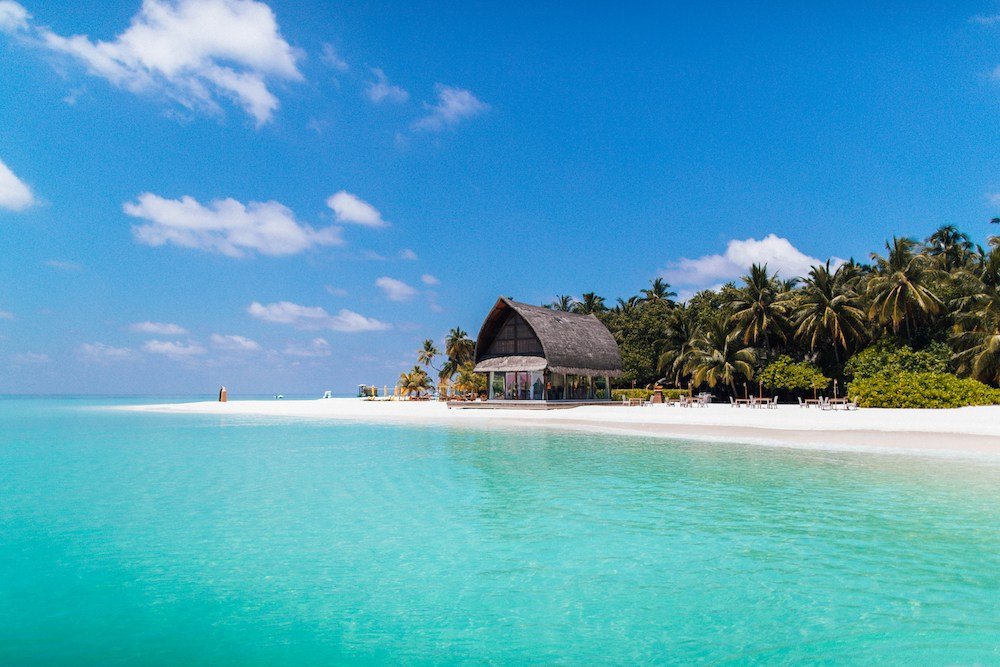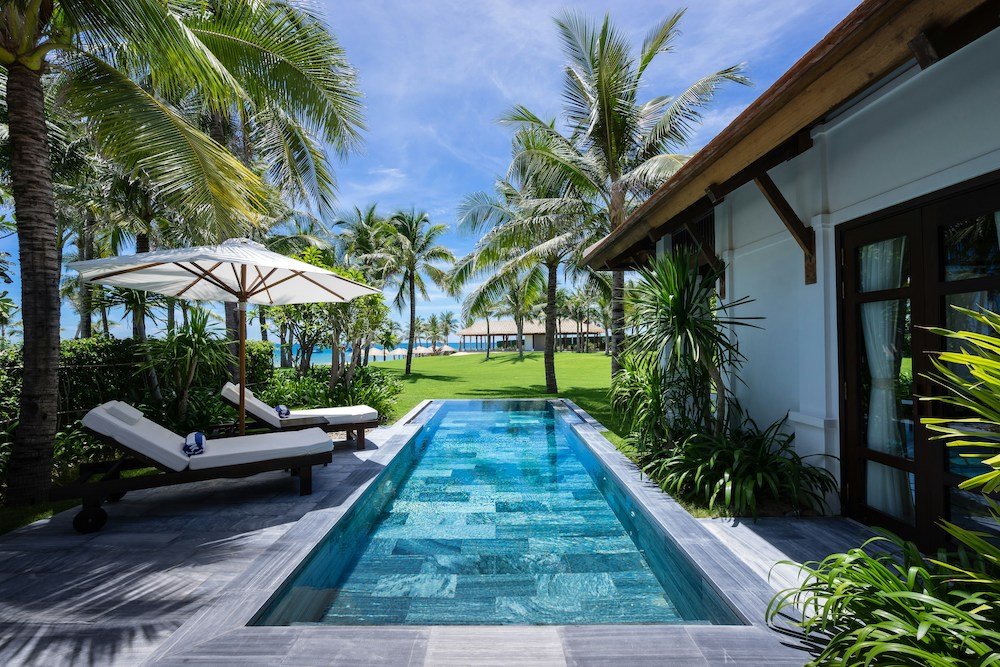
Want to discover everything you need to know about island realty?
Owning an island is a dream for many individuals, epitomizing exclusivity, luxury, and a unique lifestyle.
The allure of having your own private slice of paradise, surrounded by azure waters and swaying palm trees, is undeniable.
However, the decision to invest in island realty goes beyond mere fantasy; it’s a significant undertaking that requires careful consideration and planning.
The allure of owning an island lies in the promise of unparalleled privacy, seclusion, and natural beauty.
Away from the hustle and bustle of city life, islands offer a retreat where one can unwind, recharge, and reconnect with nature.
Whether it’s basking in the sun on pristine beaches, exploring lush rainforests, or indulging in water sports, islands provide endless opportunities for relaxation and adventure.
Moreover, the prestige associated with island ownership cannot be overstated.
From celebrities and business moguls to private individuals seeking ultimate exclusivity, owning an island symbolizes status, sophistication, and success.
While the idea of owning an island may seem idyllic, the reality is that not all islands are created equal.
Choosing the right island is paramount to ensuring that your investment aligns with your lifestyle, preferences, and long-term goals.
Factors such as location, climate, accessibility, and infrastructure play crucial roles in determining the suitability of an island for realty purposes.
Furthermore, the wrong choice of island can lead to unexpected challenges, ranging from environmental concerns to legal and regulatory issues.
Therefore, careful research and due diligence are essential to mitigate risks and make informed decisions.
The purpose of this guide is to provide prospective island buyers with comprehensive insights and practical advice on navigating the complex world of island realty.
From understanding your needs and preferences to evaluating island properties and navigating legal and financial considerations, this guide aims to empower readers with the knowledge and tools necessary to choose the perfect island.
Understanding Your Needs and Preferences

Before embarking on your quest for the perfect island, it’s essential to gain a clear understanding of your needs, preferences, and priorities.
From lifestyle considerations to budget constraints, defining your criteria will help narrow down your search and identify the island that best suits your requirements.
Lifestyle Considerations
- Recreation and Leisure Activities: When envisioning your island retreat, consider the activities and amenities that are essential to your lifestyle. Whether you’re an avid water sports enthusiast, a nature lover, or simply seeking tranquility, choose an island that offers opportunities for your preferred recreational pursuits.
- Climate Preferences: Climate plays a significant role in determining the suitability of an island for year-round living or seasonal retreats. Consider factors such as temperature, humidity, rainfall patterns, and the presence of natural disasters to ensure that the climate aligns with your comfort and preferences.
- Accessibility Requirements: Evaluate the accessibility of potential island destinations in terms of transportation options, proximity to major cities or airports, and ease of travel. Consider whether you prefer a secluded hideaway or a more accessible location with convenient amenities and services.
Budget Considerations
- Initial Purchase Price: The initial purchase price of an island property varies widely depending on factors such as location, size, amenities, and market demand. Set a realistic budget based on your financial resources and explore options within your price range to avoid overextending yourself financially.
- Maintenance Costs: Owning an island entails ongoing maintenance costs to upkeep the property, infrastructure, and amenities. Consider expenses such as landscaping, property management, staff salaries, and maintenance services when budgeting for your island investment.
- Additional Expenses (Taxes, Utilities, etc.): In addition to the purchase price and maintenance costs, factor in additional expenses such as property taxes, utility bills, insurance premiums, and other miscellaneous fees. Research the tax laws and regulations governing island ownership in your desired location to anticipate and budget for these expenses accordingly.
By carefully evaluating your lifestyle preferences and budgetary constraints, you can narrow down your search and focus on island properties that align with your unique needs and priorities.
Whether you’re seeking a luxurious retreat, a sustainable eco-haven, or a remote wilderness escape, understanding your requirements is the first step towards finding the perfect island paradise.
Researching Island Locations

When it comes to finding the perfect island, extensive research is paramount to ensure that your investment aligns with your vision and requirements.
From global hotspots to hidden treasures, exploring various island locations will help you make an informed decision.
Global vs. Regional Options
Considering the vast array of island destinations around the world, it’s important to decide whether you prefer a global or regional search.
Global options offer diverse landscapes, cultures, and climates, while regional options may provide greater familiarity and accessibility.
Popular Island Destinations
Popular island destinations such as the Caribbean, the Mediterranean, and the South Pacific are renowned for their stunning natural beauty, vibrant culture, and luxurious amenities.
These destinations often attract international investors seeking prestige, exclusivity, and world-class leisure experiences.
Lesser-Known Gems
In addition to well-known hotspots, exploring lesser-known gems can unveil hidden treasures and unique opportunities for island ownership.
Lesser-known islands may offer greater affordability, privacy, and authenticity, providing a truly exclusive and off-the-beaten-path experience.
Legal and Regulatory Considerations
- Ownership Regulations: Understanding the legal framework governing island ownership is crucial for navigating the intricacies of real estate transactions. Different countries and regions have varying laws and regulations regarding foreign ownership, land tenure, and property rights. Conduct thorough research and seek legal advice to ensure compliance with local regulations.
- Zoning and Development Restrictions: Zoning and development restrictions play a pivotal role in determining the permissible uses and limitations of island properties. Factors such as environmental conservation, cultural heritage, and infrastructure development may influence zoning regulations and development permits. Be aware of any restrictions or limitations that may impact your plans for the island property.
By conducting comprehensive research into island locations and understanding the legal and regulatory landscape, you can identify potential opportunities and challenges associated with island ownership.
Whether you’re drawn to popular destinations or hidden gems, thorough research will empower you to make informed decisions and find the perfect island that meets your needs and aspirations.
Evaluating Island Properties

Once you’ve narrowed down your search to specific island locations, the next step is to evaluate potential properties to find the perfect match for your needs and preferences.
From the size and terrain of the land to its natural features and environmental considerations, assessing island properties requires careful examination and consideration of various factors.
Property Size and Terrain
The size and terrain of an island property significantly impact its potential uses and development opportunities.
Consider factors such as the total land area, coastline length, elevation, and topography when evaluating properties.
Determine whether the size and terrain align with your intended activities and long-term plans for the island.
Natural Features (Beaches, Landscapes, etc.)
Natural features such as beaches, coastlines, forests, and wildlife habitats contribute to the unique charm and character of an island property.
Assess the quality and accessibility of beaches, the diversity of landscapes, and the presence of native flora and fauna.
Seek properties with pristine natural beauty and diverse ecosystems that enhance the overall appeal and value of the island.
Infrastructure and Amenities
Infrastructure and amenities play a crucial role in determining the comfort, convenience, and functionality of an island property.
Evaluate the availability and quality of essential infrastructure such as roads, utilities, water supply, and telecommunications.
Consider the presence of amenities such as resorts, marinas, restaurants, and recreational facilities that enhance the lifestyle and appeal of the island.
Environmental Concerns
- Conservation Efforts: Environmental conservation is paramount to preserving the natural beauty and ecological integrity of island ecosystems. Research ongoing conservation efforts, protected areas, and biodiversity hotspots within and around the island property. Support initiatives that promote sustainable development and responsible stewardship of natural resources.
- Impact on Local Ecosystems: Assess the potential impact of development activities on local ecosystems, habitats, and species diversity. Consider factors such as habitat fragmentation, pollution, deforestation, and invasive species that may threaten the ecological balance and resilience of the island. Implement measures to minimize negative impacts and promote ecological sustainability in all aspects of island development and management.
By thoroughly evaluating island properties based on size, terrain, natural features, infrastructure, amenities, and environmental considerations, you can identify opportunities that align with your vision and values for island ownership.
Prioritize properties that offer a harmonious blend of natural beauty, accessibility, and sustainability, ensuring a rewarding and enriching island experience for generations to come.
Working with Island Realtors and Agents

Navigating the intricate world of island realty requires the expertise and guidance of experienced professionals who understand the unique challenges and opportunities associated with buying and selling island properties.
Partnering with reputable island realtors and agents, such as Isle Keys, can streamline the process and ensure a smooth and successful transaction.
Importance of Local Expertise
Island real estate markets operate within distinct local contexts shaped by geography, culture, and regulatory frameworks.
Local expertise is invaluable for navigating the intricacies of island ownership, including land tenure laws, zoning regulations, environmental considerations, and community dynamics.
Island realtors and agents possess intimate knowledge of the local market conditions, property inventory, and investment opportunities, enabling them to provide invaluable insights and guidance throughout the buying process.
Finding Reputable Agents
When selecting an island realtor or agent, it’s essential to prioritize reputation, experience, and professionalism.
Seek recommendations from trusted sources, research online reviews and testimonials, and interview multiple candidates to assess their qualifications, track record, and commitment to client satisfaction.
Look for agents with specialized expertise in island realty, a proven track record of successful transactions, and a deep understanding of your specific preferences and requirements.
Communicating Your Needs Effectively
Effective communication is key to ensuring that your realtor or agent understands your needs, preferences, and priorities.
Clearly articulate your budget, timeline, desired location, property criteria, and any unique considerations or preferences upfront to facilitate targeted property searches and tailored recommendations.
Maintain open and transparent communication channels throughout the buying process, seeking clarification, guidance, and updates as needed to make informed decisions and achieve your real estate objectives.
Negotiating the Deal
Negotiating the terms of a real estate transaction requires skill, tact, and strategic insight to achieve favorable outcomes for all parties involved.
Your island realtor or agent will serve as your advocate and negotiator, leveraging market knowledge, industry expertise, and negotiation tactics to secure the best possible terms and conditions for your purchase.
Trust your agent’s guidance and expertise, remain flexible and open-minded during negotiations, and be prepared to compromise on non-essential issues to reach a mutually beneficial agreement.
By working closely with experienced island realtors and agents like Isle Keys, you can leverage their local expertise, industry connections, and negotiation skills to navigate the complexities of island realty with confidence and peace of mind.
From property search and due diligence to negotiation and closing, your trusted advisor will be by your side every step of the way, ensuring a seamless and successful real estate transaction that meets your objectives and exceeds your expectations.
Legal and Financial Aspects

Navigating the legal and financial aspects of island realty is a critical component of the purchasing process.
From conducting thorough due diligence to understanding tax implications, financing options, and insurance considerations, being well-informed and proactive in addressing legal and financial matters is essential for a successful island property transaction.
Legal Due Diligence
Before finalizing any real estate transaction, it’s imperative to conduct comprehensive legal due diligence to verify the ownership status, title history, and any encumbrances or liens associated with the island property.
Engage qualified legal professionals with expertise in real estate law and local regulations to review relevant documents, contracts, and permits, ensuring compliance with applicable laws and mitigating potential risks or liabilities.
Tax Implications
Understanding the tax implications of island ownership is crucial for financial planning and compliance with tax laws and regulations.
Research tax rates, exemptions, deductions, and reporting requirements applicable to your jurisdiction of purchase, as well as any international tax considerations if you are a foreign investor.
Consult with tax advisors and accountants to optimize tax strategies, minimize tax liabilities, and maximize potential benefits associated with island realty investments.
Financing Options
Financing an island property purchase may involve exploring various financing options tailored to your financial circumstances and investment objectives.
Evaluate traditional mortgage loans, private financing arrangements, and alternative financing sources to determine the most suitable option for your needs.
Consider factors such as interest rates, loan terms, down payment requirements, and eligibility criteria when comparing financing options and securing funding for your island investment.
Insurance Considerations
Insuring your island property against potential risks and liabilities is essential for safeguarding your investment and protecting your financial interests.
Explore insurance coverage options tailored to island properties, including property insurance, liability insurance, natural disaster coverage, and specialized policies for unique risks such as hurricanes, earthquakes, and coastal erosion.
Work with insurance professionals to assess your insurance needs, evaluate coverage options, and secure comprehensive insurance policies that provide adequate protection and peace of mind.
By addressing legal and financial aspects such as legal due diligence, tax implications, financing options, and insurance considerations proactively, you can mitigate risks, optimize financial outcomes, and ensure a smooth and secure transaction process when purchasing an island property.
Prioritize thorough research, professional guidance, and prudent decision-making to navigate the complexities of island realty with confidence and clarity.
Environmental and Sustainability Factors

As stewards of the natural environment, it’s imperative to prioritize environmental conservation and sustainability when investing in island realty.
From conducting environmental impact assessments to implementing sustainable development practices and adopting renewable energy solutions, incorporating environmental considerations into island property ownership is essential for preserving the ecological integrity and long-term viability of island ecosystems.
Environmental Impact Assessments
Conducting thorough environmental impact assessments is essential for evaluating the potential ecological consequences of development activities on island properties.
Assess the impacts of construction, infrastructure development, and land use changes on sensitive habitats, biodiversity, water quality, and ecosystem functions.
Consider engaging environmental consultants and specialists to assess environmental risks, identify mitigation measures, and ensure compliance with regulatory requirements and best practices.
Sustainable Development Practices
Embracing sustainable development practices is key to minimizing environmental degradation and promoting ecological resilience in island communities.
Integrate principles of sustainability, resource efficiency, and ecosystem stewardship into all aspects of island development and management, including land use planning, infrastructure design, construction practices, and waste management.
Prioritize low-impact development techniques, green building standards, and conservation-oriented land management strategies to enhance environmental sustainability and minimize ecological footprints.
Renewable Energy Options
Embracing renewable energy options offers opportunities to reduce dependence on fossil fuels, mitigate greenhouse gas emissions, and promote energy independence in island communities.
Explore renewable energy technologies such as solar photovoltaics, wind turbines, hydroelectric systems, and geothermal heating to harness clean, renewable energy resources and minimize environmental impacts.
Invest in energy-efficient appliances, lighting, and building systems to optimize energy performance and reduce energy consumption in island properties.
Waste Management Strategies
Implementing effective waste management strategies is essential for minimizing pollution, preserving natural resources, and protecting marine and terrestrial ecosystems in island environments.
Adopt waste reduction, recycling, and composting practices to minimize the generation of solid waste and promote resource recovery and reuse.
Establish waste collection, treatment, and disposal facilities that comply with environmental regulations and prioritize environmentally sound waste management practices, such as landfill diversion, incineration, and hazardous waste disposal.
By prioritizing environmental impact assessments, embracing sustainable development practices, investing in renewable energy options, and implementing effective waste management strategies, island property owners can contribute to the conservation of natural resources, protection of biodiversity, and promotion of environmental sustainability in island communities.
Embrace a holistic approach to environmental stewardship and sustainable development, recognizing the interconnectedness of human activities and natural systems in island ecosystems.
Community and Culture

The integration of island property owners into local communities and the appreciation of cultural diversity are integral aspects of island living.
Understanding and respecting the unique customs, traditions, and values of local communities contribute to harmonious relationships and enriching experiences for residents and visitors alike.
Integration with Local Communities
Building strong connections and fostering positive relationships with local communities is essential for successful integration into island life.
Participate in community events, volunteer initiatives, and cultural celebrations to engage with residents, learn about local customs, and contribute to the social fabric of the community.
Support local businesses, artisans, and cultural institutions to promote economic vitality and sustainable development in island communities.
Cultural Diversity and Acceptance
Embracing cultural diversity and promoting acceptance and inclusion are fundamental principles of island living.
Celebrate the rich tapestry of cultural heritage and traditions that define island communities, embracing the diversity of languages, cuisines, music, and art forms that contribute to the unique identity of each island.
Respect cultural sensitivities, norms, and taboos, and strive to cultivate an atmosphere of mutual respect, understanding, and appreciation for diverse perspectives and experiences.
Support Networks and Services
Access to support networks and essential services is essential for meeting the needs and addressing the challenges of island living.
Identify and engage with local service providers, healthcare professionals, emergency responders, and community organizations to access essential services and resources.
Establish connections with fellow residents, expatriates, and newcomers to build support networks, share experiences, and collaborate on initiatives that enhance quality of life and community resilience.
By embracing the values of community and culture, island property owners can forge meaningful connections, foster cultural exchange, and contribute to the vibrancy and vitality of island communities.
Embrace opportunities for collaboration, cooperation, and collective action to promote social cohesion, cultural enrichment, and inclusive development in island environments.
Together, we can create thriving, resilient, and inclusive communities that celebrate diversity, preserve heritage, and promote the well-being of all residents.
Conclusion
As you embark on your journey to find the perfect island paradise, it’s essential to reflect on the key considerations and insights shared throughout this guide.
From understanding your needs and preferences to navigating legal, financial, and environmental factors, choosing the right island requires careful planning, research, and deliberation.
Throughout this guide, we have explored various aspects of island realty, including lifestyle considerations, researching island locations, evaluating properties, working with island realtors and agents, and addressing legal, financial, environmental, and cultural factors.
By prioritizing your needs, conducting thorough research, and seeking expert guidance, you can make informed decisions and find the perfect island that aligns with your vision and aspirations.
The world of island realty offers endless possibilities for adventure, discovery, and fulfillment.
Whether you’re seeking a tropical oasis, a secluded sanctuary, or a cultural haven, there is an island waiting to be discovered that resonates with your dreams and desires.
Embrace the opportunity to explore diverse destinations, engage with local communities, and immerse yourself in the beauty and richness of island life.
Final Tips for Choosing the Perfect Island
As you embark on your quest to find the perfect island, consider the following tips to guide your decision-making process:
- Define your priorities and preferences: Identify the lifestyle, environmental, cultural, and logistical factors that matter most to you.
- Conduct thorough research: Explore a variety of island locations, properties, and investment opportunities to expand your options and make informed choices.
- Seek expert guidance: Consult with experienced island realtors, agents, legal advisors, financial planners, and environmental specialists to navigate the complexities of island ownership.
- Consider long-term sustainability: Prioritize environmental conservation, community engagement, and cultural preservation to ensure a sustainable and enriching island experience for generations to come.
- Trust your instincts: Listen to your intuition and follow your heart as you explore different islands and envision the possibilities for your future island home.





